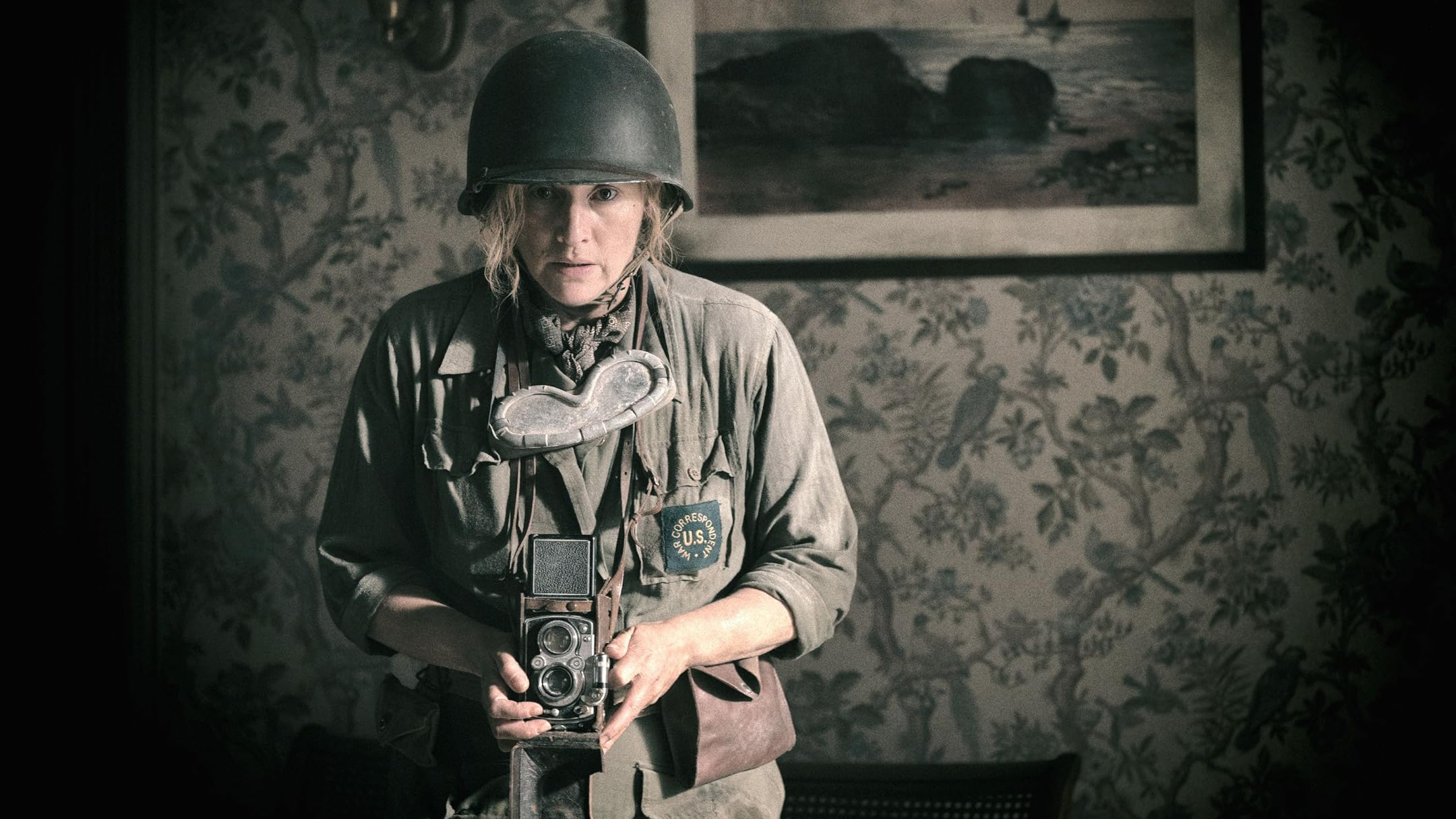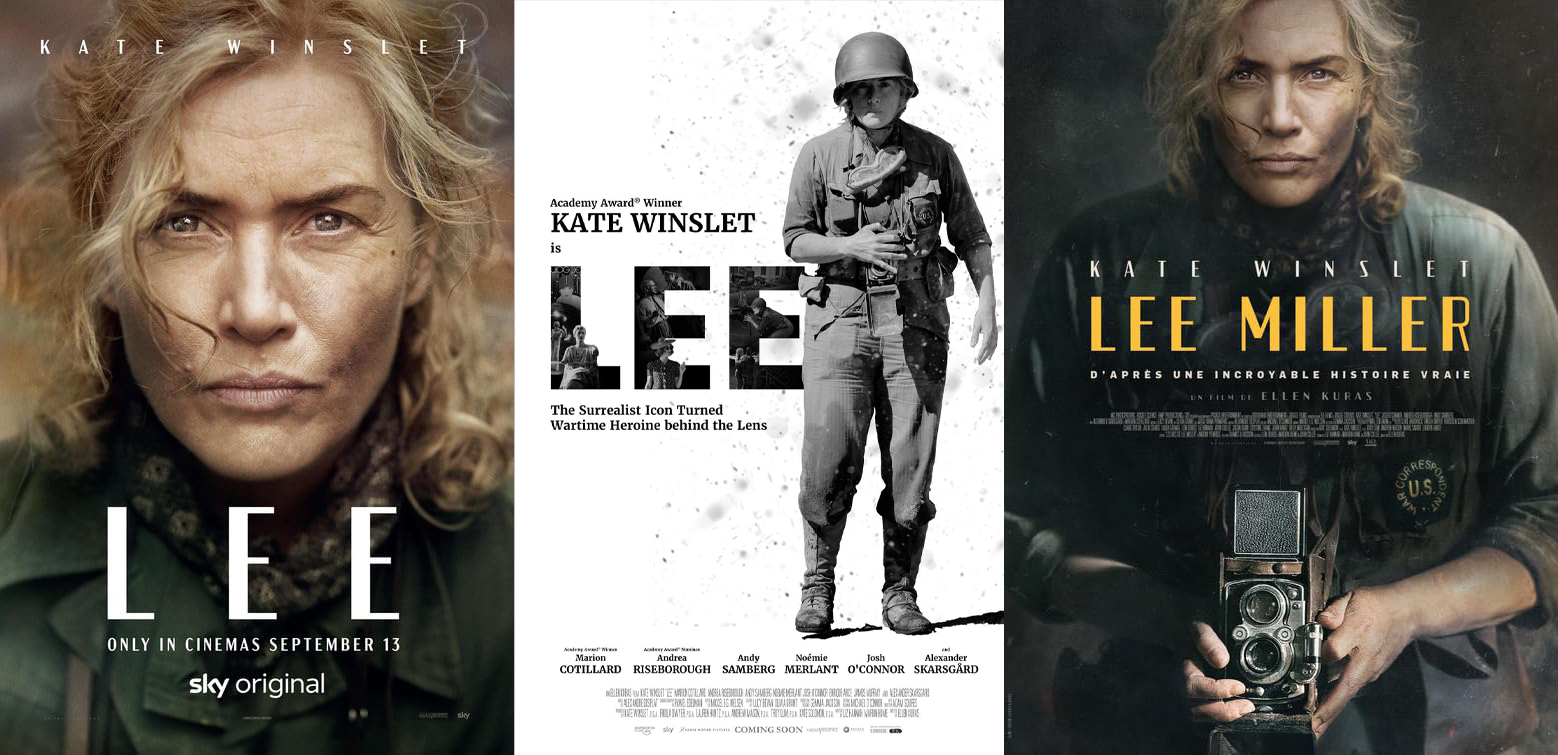
With the biopic of American photographer Lee Miller opening at theaters in the UK today, star Kate Winslet has spoken about the many challenges faced by Lee – both for the real-life Miller, as a female war photographer covering the atrocities of concentration camps, and for Winslet trying to get a film about a woman made in 2024.
"As a woman, it is very hard to make films about women, believe it or not," said the star while appearing on British talk show, Lorraine (embedded below). "Lee Miller had a vast, vast life, and if you Google her she's often referred to as a muse, or the ex-model, former covergirl – which was a sliver of her life in her twenties.
"And this film focuses on the middle-aged, flawed Lee Miller, who went to war as a nearly forty-some woman and documented what was happening on the front line for the benefit of the female readers of Vogue. Because she knew that so much was being kept, so much was being hidden away, and she believed in revealing the truth. And she believed in being a visual voice as a photographer for the victims of conflict."
Lee has been a longtime passion project for Winslet. The star had been striving to get the picture made for nine years. A big part of her drive was to rescue Miller's legacy from the male gaze, and the reductionist view of her place in history – a struggle that mirrored the photographer's own tenacity.
"This was an incredibly powerful, compassionate and passionate woman who was incredibly respectful about how she did her job. And so brave to go by herself when no women were doing this. No women were going as photographers – they couldn't even get their war accreditation to be given permission to go. But somehow she cut through all the red tape and she went there and she did it. She was just relentless and she wouldn't give up."
While best known for her role in another historical piece, Titanic, that freestyled with history, Winslet was conscious about remaining true to Miller's story – particularly given the gravity of what she was documenting.
"When we do touch on some of those scenes as you say, within the concentration camps, we really just were ruthless with with ourselves about following the facts. We had Lee Miller's real images, her photographs, the things that she had witnessed. And she beared [sic] witness, and that was her job, and she felt that that was her duty.
"And so it was our duty as the filmmakers responsible for bringing this story to life that we just followed that line and that truth. So we only show what we really know that Lee did see, and we interpret it in our own way and give life to it."

More than anything, Winslet hopes that Miller's story – and her passion to play her – inspires a new generation of young women to use their voice and feel empowered in their femininity.
"I think we live in a time now where we are starting to see, I think, actresses play parts that are redefining what it means to be feminine. Femininity is different now. Femininity isn't a flowery dress and a tiny little figure and a full face of makeup; femininity is resilience, and courage, and power, and passion, and sisterhood, and standing up for oneself – and for me that's who Lee Miller was and that's why
I wanted to play her so much.
"It's really important that we give these young women a world to walk into that they feel they can hold their heads high. And that's what Lee was able to do, certainly for me in playing her. And hopefully I've been able to do that in making this film."
Lee is playing at theaters in the UK and Irelance from today. It opens in the US on September 27. For more information, visit the official website, and you can watch the trailer below.
You might be interested in the best photographers ever, along with the best cameras for street photography, documentary and reportage.







